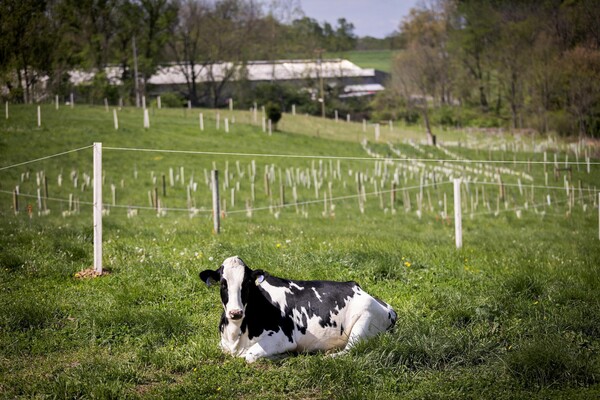
Image: Andriy Onufriyenko via Getty Images

Amy Wu is a fourth-year neuroscience and economics major in the Vagelos Program in Life Sciences & Management through the School of Arts & Sciences and the Wharton School.
Wu, who grew up in Hershey, Pennsylvania, is an aspiring geriatrician with a longstanding interest in learning and memory. She began at Penn in 2020, during the peak of the COVID-19 pandemic, and the firsthand experience of isolation inspired her to volunteer with seniors in the community.
“I think the most immediate trigger for me was the pandemic,” says Wu. “Even with Zoom classes and club meetings it still felt very isolating, and that got me thinking more about seniors and what life must be like for them, being stuck inside and not having the technology to really communicate with other people or their loved ones.”
“I started researching ways to volunteer with seniors and I stumbled upon the Brain Exercise Initiative in May 2021,” says Wu. “It was something that I immediately wanted to be a part of.”
Just four months later, in September 2021, Wu founded the Penn chapter of the Brain Exercise Initiative, a service club that provides free reading, writing, and math exercises to seniors living in local retirement homes.
The Brain Exercise Initiative is a nonprofit with over 80 university chapters across the United States and Canada that aims to “help more seniors remember and thrive.” Its platform is based on research pioneered by Japanese neuroscientist Ryuta Kawashima that suggests that engaging in daily arithmetic and reading can improve cognitive and social function in senior citizens.
At Penn, the club has grown to include over 100 members who span the School of Arts & Sciences, School of Engineering and Applied Science, School of Nursing, and the Wharton School.
“It’s really been rewarding to see this initiative grow,” says Wu. “I am so grateful for the incredible group of undergrads on the board—Advait Thaploo, Denise Zheng, Melody Cheng, Sam Ostrowski, and Anna Swartley—for their work making connections, recruiting volunteers, and for helping build a sense of community within the Brain Exercise Initiative.”
Each week, member volunteers visit retirement homes including Care Pavilion Nursing and Rehabilitation Center in West Philadelphia. There, they work through exercise packets with interested seniors. The packets include trivia questions, math questions (multiplication, division, addition, and subtraction) and a one to two page reading passage. The trivia questions are the most popular component, Wu says, and some seniors just want to talk.
“We’re very open to going with the flow and seeing what the senior wants,” says Wu. “At this point we’ve done everything from origami, to drawings, to wordle, to just talking. It’s been an important reminder that you never know the needs of the people you want to help better than they do, so it’s really important to have that kind of direct interaction.”
Wu wanted to create a bridge between seniors in the community and students at Penn who were seeking ways to give back.
“There’s dementia in my family, so it’s always something that’s been on my mind,” says Wu. “I saw this as a way of connecting two problems—eager students, like myself, who really wanted to volunteer but weren’t able to because of COVID-19 fears, and underserved seniors in the community who were even more isolated than usual.”
As she begins her final year at Penn, Wu says she is proud of her work with the Brain Exercise Initiative and keen to continue helping senior citizens.
“I would definitely like to stay involved, if that’s possible,” Wu says. “If not through the Brain Exercise Initiative, I might try to start another community-based initiative that extends the same mission and work.”
For students interested in becoming involved, the Brain Exercise Initiative is “a really great way to give back to the community and to provide social support,” says Wu. “We’ve all had those times when we felt alone, and this is a great chance to work with seniors who are so often isolated and to help bring a smile to their faces.”
Liana F. Wait

Image: Andriy Onufriyenko via Getty Images

Four women street vendors sell shoes and footwear on a Delhi street.
(Image: Kannagi Khanna)

nocred

nocred